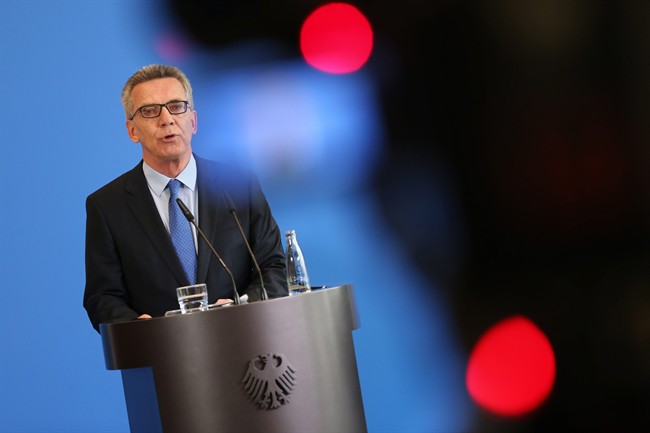Germany’s Interior Minister Thomas de Maiziere announced new security measures for the country on Thursday.

The new measures being proposed include stripping dual citizens who fight for extremist groups of their German citizenship and making it easier to take individuals who are deemed dangerous or are involved in suspected criminal activity into pre-deportation custody.
“I am convinced that these proposals will increase security quickly,” de Maiziere told reporters in Berlin.
“We want to include the endangering of public security as a new cause for detention in the Residence Act, to be able to enforce obligations to leave the country effectively in such cases. In the future we want to make greater use of the measure of pre-deportation custody for criminal foreigners and those who pose a threat to public security.”
The new measures also include the expansion of hotlines and centres for newly arrived refugees to report suspicious behaviour.
“We will create opportunities for refugees to be able to report in their own language in a single place if they notice changes in their flatmates, be they psychological changes or tendencies to radicalization,” de Maiziere said.
There had been calls from some state level ministers and politicians to ban the burqa in Germany but de Maiziere called this, “constitutionally problematic,” adding, “you can’t ban everything you oppose, and I oppose wearing the burqa.”
READ MORE: Germans balancing attitudes on asylum seekers, terrorism after string of attacks
One of the more controversial things that de Maiziere has suggested as part of the proposed measures is to allow doctors to breach strict confidentiality laws. The new security proposal would mean doctors would not face jail time for breaching doctor patient confidentiality if they suspect someone could pose a danger.
These new measures come on the heels of several terror-related attacks in Germany that have put the country on edge.
On July 18 an Afghan teen asylum seeker injured four people with an axe on a train in Wurzburg. This was followed by a failed suicide bombing that only killed the bomber in the German town of Ansbach and a machete attack in which a Syrian refugee claimant, suspected of being an ISIS sympathizer, killed a woman and injured four others, in late July.
READ MORE: What’s safe? European security changes after wave of terror attacks
On Wednesday, police carried out raids on suspected Islamic militants in the West German state of North Rhine-Westphalia as security forces and intelligence authorities remain on alert following these attacks.
The discussion on measures to prevent attacks in the country has also sparked discussion on a topic that has long been considered taboo, the deployment of the military on home soil. Since the Second World War the German military has not been deployed in the country and the legacy of the war has made this controversial.
In early August, German Minister of Defense Ursula Von der Leyen confirmed they were considering options for the training and deployment of the Bundeswehr on German soil in times of crisis such as a terror attack.
Melanie de Klerk is currently living in Berlin as one of the 2016 Arthur F. Burns Journalism Fellows.




Comments